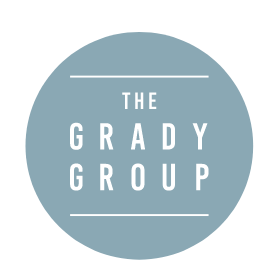Hiring the wrong person can often feel frustrating and inconvenient. But there is more to it than that. It also costs your business money. $17000, on average, according to a recent survey.
It’s a problem you want to avoid when looking to hire for any new role, particularly an executive role.
That’s why many businesses turn to professional support from an executive placement firm. Here’s how to get the most from that relationship.
Start by Focusing on Your Business Needs
Begin with a clear idea of what you want.
Run an internal assessment of your company’s strengths and weaknesses. That should include your current leadership team plus anyone in a senior management role.
Aim to understand the existing gaps in skills, personalities, and leadership experience. Use that as your starting point for establishing what executive role you want to hire.
Next, focus on your gaps at the department level. You might want to review KPIs (key performance metrics) for this to see which teams are underperforming.
Perhaps you have low productivity in one of your departments. Or maybe you have a team with a high staff turnover. These are all signs that you might have an area of your business that needs fresh executive talent.
Choosing a Recruitment Firm
Aside from the person you choose to recruit, the most crucial decision you’ll make is the recruitment firm you select.
There is one important rule to follow when recruiting employees. It’s vital you choose a recruitment team that specializes in executive hiring.
Firms with specialist knowledge will have a deeper understanding of the unique qualities you need in a leadership role.
They’ll also be able to work with you on a more strategic level in your business to find someone who can take on the unique challenges you face.
A specialist team will also bring proven methods for sorting through potential candidates. Plus, they’ll often have existing contacts they can connect with to pitch a job proposal to the most sought-after talent in your industry.
Furthermore, they can offer honest advice on the type of package and compensation you need to advertise to attract the executive level you need.
Working With an Executive Recruitment Team
You want to establish a communication channel with your recruitment team from day one.
That will help you work as a team to reach your goals. Ask the recruitment firm for a single point of contact, and ensure you have the same from your side. It will make interactions more efficient and miscommunication less likely.
Another aspect of your relationship you should establish from the start is letting the recruiter know about your company culture. That’s for two reasons.
First, it’s relevant to the people you want to recruit. So it will help the recruitment team tailor the job spec.
Second, it will help the recruiter understand your business and how they can best work with you.
Creating a Job Specification
The best way to find the perfect executive is to collaborate closely with the recruiter to write the job spec. That will give you the best of both worlds.
It will contain the right information about what you are offering and what you want, allowing the recruiter to pitch the job in the most attractive way possible.
Writing the job spec is your chance to explain to the recruiter what skills and experience you need.
Talk to the recruiter about finding a good cultural fit and some of the leadership qualities you want in an executive. Talk about your business growth and how that person is crucial to your strategy.
A prospective leader will want to have a firm grasp of what they can offer to the role. So be clear about how they will help with your company’s strategic direction and what career opportunities may open up to them in the future.
Once you have this foundation, it will be time for the recruiter to turn it into a compelling job ad.
Keep working closely with the recruiter at this stage, and offer feedback on whether you feel the ad is accurate and effective.
This part of the process is also the ideal time to speak to the recruiter about their existing network of contacts. They may already know several people who could be a good fit.
It’s a chance to reach out to the right person early and dramatically cut the timescales for your recruitment process.
How to Assess Candidates
When the recruiter presents a shortlist of candidates to you, take the time to review their resumes or job applications against your criteria.
Remember that the recruiter will have already screened these resumes. Hence, your task is more about shortlisting candidates into potential employees versus rejections.
Always aim to look beyond the basics of a resume in the initial interview with the candidate. Focus on the things that make someone a good leader.
That’s often best demonstrated by their experience rather than professional qualifications. You want someone who can show an aptitude for leading others, problem-solving, and strategic thinking.
Once you’ve had initial interviews with candidates, narrow your selection and run panel interviews.
A panel interview is your chance to get a department representative involved so that you can better understand whether the candidate will positively impact that part of the business.
Assessments and psychometric tests can also be helpful at this stage. They can help you check personality traits, leadership styles, and aptitude for specific skills.
Making the Most of the Recruitment Firm
Throughout the process of choosing a candidate, remember to use the recruitment firm to your advantage.
First, provide regular feedback to the recruiter on the quality of all candidates.
If you see too many resumes that don’t fit your needs, chat with the recruiter about how they can change their screening process. It might also mean a slight change to the job description.
Second, remember that a recruiter will have market insights that can be invaluable to your company.
For example, they’ll know about compensation trends in an industry and the type of packages and benefits that are most likely to win you a top talent. Make sure you speak to the recruiter for their advice.
Third, remember that this is a long-term relationship.
Give your recruiter the long-term vision and goals for your business. If they understand your ongoing recruitment plans, it will help them line up other potential candidates before you’re ready to begin advertising.
Creating a Seamless Onboarding Experience
Remember that a recruiter can also help you onboard new executives. It’s an essential stage because familiarizing the new recruit with your company and processes will allow them to hit the ground running once they start.
Ask the recruiter for support in assembling a tailored onboarding process that suits the candidate’s background, strengths, and weaknesses.
A good onboarding plan will help introduce the recruit to the team, culture, and company processes. You may also want to include more formal training.
Measuring the Success of Your Partnership With a Recruitment Firm
To get the most from your partnership with a recruitment firm, take the time to assess it meaningfully. It will help you spot areas for improvement. You could use key performance indicators to do this.
For example, one helpful measurement might be the timescales for each part of the process. It will help you spot any bottlenecks that might be holding things up.
Another helpful metric is the success rate of the chosen candidate. It’s a good measure of whether the recruiter helped you find the right fit.
If they aren’t performing in their job or leave their position within the first 12 months, speak with the recruiter and focus on what went wrong.
A satisfaction survey is also a valuable measure. Speak to internal teams who have worked directly with the recruiter to get feedback about how things went during their last candidate selection.
Future-Proofing Your Hiring Strategy
Always remember that a good hiring strategy is fluid, not fixed. You need to adapt to what is happening elsewhere.
Let the recruiter guide you here. They may have substantial knowledge of legal or technical trends that are relevant to you. They may also spot employee trends that could be important for your future recruitment plans.
For example, there has been a shift towards remote working in recent years. Aim to maintain regular contact with your recruitment partner even when you aren’t actively recruiting.
They may have important insights for you to put in place now so that you’re still a highly sought-after company once you’re ready to hire a new executive.
Finding the Best Executive Placement Firm
A talented executive can help your business grow.
They bring industry insight, leadership skills, and a wealth of meaningful experience. But to tap into that requires some outside help from an executive placement firm. Use this guide to help you get the most from that partnership.
The Grady Group is a leading specialist in finding top executives for the consumer packaging industry. Learn more about how we can support your executive recruitment efforts.






